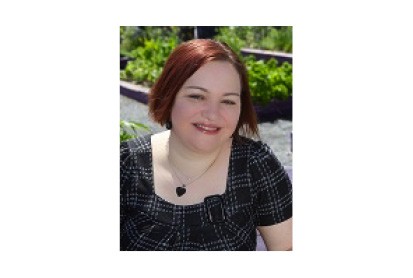In “Quiver,” Julia Watts’ latest novel, two homeschooling families settle in a rural community outside of Knoxville for very different ideological reasons. An evangelical family is raising a “quiverfull” of children as future warriors for God, and an artsy, progressive family with a gender-fluid teen is headed back to the land to escape city stresses (like test-happy public schools). Just as neighbor was positioned against neighbor in East Tennessee in the Civil War, these modern families fight on opposite sides of the growing culture wars.
Julia Watts, who lives and writes from the Cedar Bluff area, says she was writing the book during the 2016 elections, in an atmosphere of growing divisiveness, when it began to seem rare to consider people as people apart from their cultural identity tags.
She will meet readers and sign the book “Quiver” at Union Avenue Books at 2 p.m. Sunday, Oct. 28.
“What we’re missing is being able to show sympathy and empathy,” Watts says. The teens in “Quiver” manage to do that, in a book that is fast-paced, intelligent and lively. The book, from Three Rooms Press, just received a rare 10-star rating from “VOYA,” a journal about young adult literature. Watts was honored with the Lambda Literary Award for her 2001 novel “Finding H.F.” and was a finalist for her 2013 novel “Secret City.” Last year she was inducted into the East Tennessee Writers Hall of Fame. She also teaches at South College.
Watts grew up in suburban Southeastern Kentucky, where she started writing as a “little, little kid,” she says, illustrating her handwritten stories herself. She also wrote a high school entertainment column for the Corbin newspaper. Her parents, Rayford and June Watts, are noted potters, and she says she always felt creatively supported at home.
Because her family has been in Appalachia for generations, she is extra-mindful of how the region is portrayed.
“It’s very important if you are an Appalachian writer to dispel stereotypes,” she says.
She came to Knoxville in the 1980s to study literature at UT, where she remembers professors Bob Leggett, Dick Penner and others. She then got a master’s degree in English at the University of Louisville, where she wrote a thesis of short stories under the mentorship of writer Sena Jeter Naslund. (She later earned an M.F.A. at Spalding University). After Louisville she came back to Knoxville planning to start a doctoral program. Instead, a character came to her, and she started writing a novel.
It was her form, she says.
“I needed the luxury of stretching things out, meandering.”
Watts still writes her first drafts in longhand, which makes it easier to juggle her creative work with all the other things that make up her day, including family. Her older son, Ian, 23, is in a doctoral program for biology at the University of North Carolina. Her 16-year-old, Alec, is at Hardin Valley Academy, and enjoys writing and drawing and other creative pursuits.
“Like a lot of women who are mothers who write, I learned to write in the time I have,” Watts says.
Her latest work – which she says is still just notes and plotting – has a character whose home life is affected by the region’s opioid crisis.
Although the popularity of “Quiver” means name recognition for Watts is higher than ever, she says she can’t think about sales and honors when she’s putting words down.
“It has to be like being a kid – playing,” she says. When doubts creep in, she tells herself the same thing she tells her students: “If you don’t doubt, you’re probably not doing it right.”

